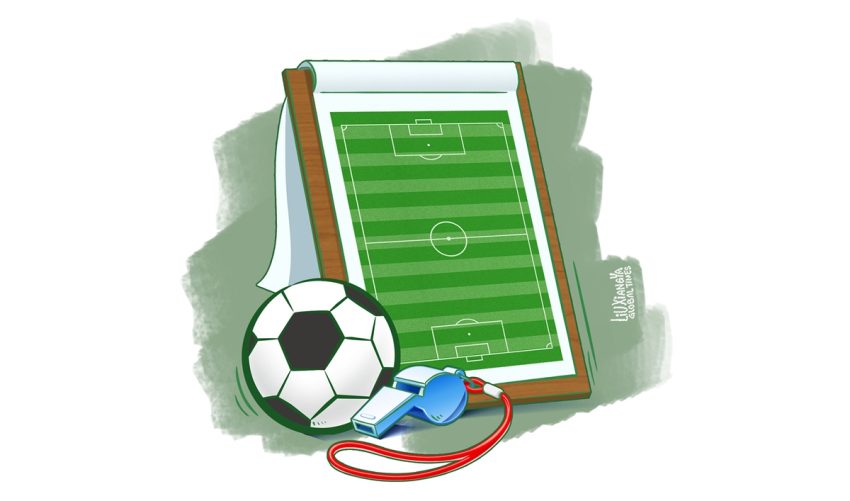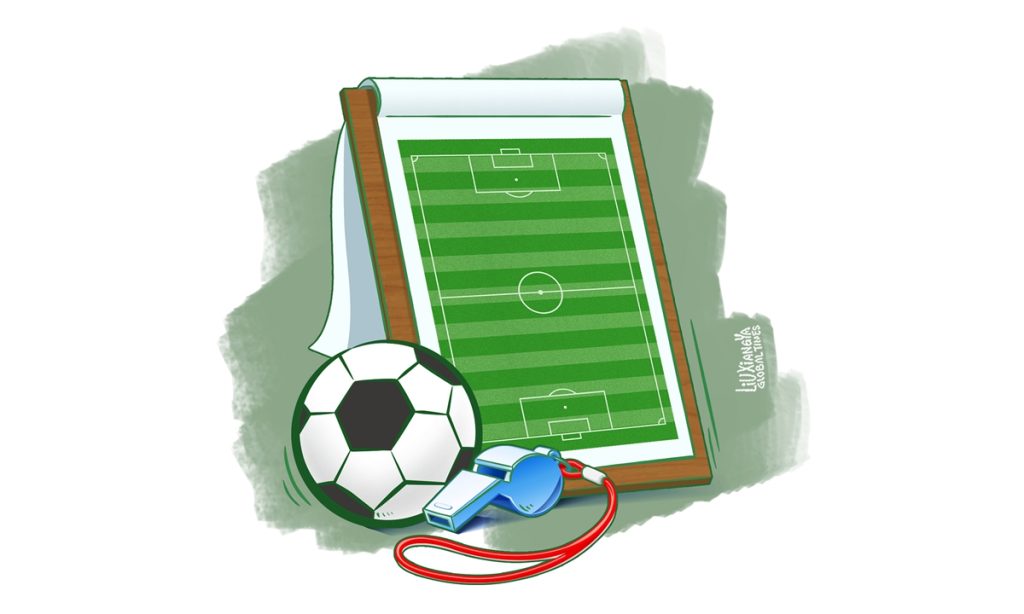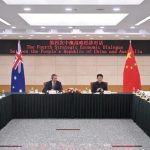
Will changing coach cure nation’s soccer woes?

The calls to change the head coach of the Chinese national soccer team have been growing louder since their home 2-1 loss to Saudi Arabia on Tuesday. The game marked yet another defeat for China in the third round of the World Cup Asian qualifiers under the helm of Croatian coach Branko Ivankovic.
While the loss to Asia's seventh-ranked team Saudis might seem acceptable on the surface, the frustration among fans is palpable. Many say that Ivankovic's tactical shortcomings have cost the team valuable points, leading to rising calls for him to step down.
But is removing Ivankovic truly the best solution for Chinese soccer? As emotions run high and discussions swirl, it's essential to take a step back and evaluate the broader context of China's soccer struggles.
After the final whistle in the match against Saudi Arabia, chants of "Ivan out" echoed through the stadium. These frustrations are not without reason.
Ivankovic's indecisiveness, particularly when it comes to substitutions, has become a glaring issue. As fans watched Ivankovic hesitate to make key substitutions, the team struggled to find any real attack rhythm when playing with a one-man advantage for most of the time during the match.
China's defensive organization also came under scrutiny. Many have pointed to Ivankovic's inability to adapt his tactics to the fast-paced nature of international soccer, resulting in a team that appears disjointed and unprepared.
While Ivankovic's tactical missteps are front and center in the current discussion, Issues with Chinese soccer go much deeper.
One of the most significant problems plaguing the team is the pace of domestic competition. The Chinese Super League (CSL) is notorious for its slow tempo, which is a far cry from the intensity seen in international tournaments.
Many of the national team's players, especially those who are accustomed to a slower pace, struggle to adjust to the high-pressure, fast-moving nature of international soccer. The result? Fatigue and lapses in concentration, particularly in the second half of matches.
The physical condition of several China internationals, especially when it comes to stamina, has come under scrutiny. It's not uncommon to see players running out of steam as the game progresses, which often leads to costly mistakes. This lack of fitness, combined with tactical indecisiveness, has been a recurring theme for the team in recent years.
In this context, expecting any coach - even one with a stellar track record - to turn things around immediately may be unrealistic. The core issue is the development of players within the domestic league and youth system, where both the pace of play and the quality of coaching need significant improvement.
Some domestic soccer pundits have been calling for a replacement of Ivankovic with a temporary caretaker.
The argument here is twofold: First, a local coach might have a better understanding of the players and be able to implement tactical strategies that align more closely with their strengths. Second, the Chinese Football Association (CFA) could use this interim period to search for a high-caliber coach willing to take on the challenging task of rebuilding China's soccer fortunes.
This move could give the CFA more time to assess their options without rushing into a decision. It would also provide a fresh perspective for the players, who may benefit from a new voice in the locker room. However, this option is not without its risks. Transitioning to a new coach, especially mid-campaign, could lead to more instability if not handled properly.
Even if Ivankovic is replaced, the reality is that the problems facing Chinese soccer are systemic. The national team's struggles are symptomatic of deeper issues within the country's soccer infrastructure. These issues include the slow pace of domestic competition and inadequate youth development programs.
For China to truly become competitive on the international stage, changes need to be made at every level of the sport. The CSL must improve its pace and intensity to better prepare players for the demands of international soccer.
Additionally, the focus must shift to youth development. Without a solid foundation of young, technically skilled players coming through the ranks, China's national team, whose average age is already 28.7, will continue to rely on veteran players.
There's a saying in Chinese that translates to "Even a clever housewife can't cook without rice." No matter how good a coach is, they need quality players to implement their tactics. This means that until China addresses these root problems, the national team's struggles will likely continue, regardless of who is at the helm. One potential silver lining in this challenging period is the opportunity to integrate more young players into the national team. The Asian qualifiers may be an ideal time to bring in younger, hungrier players who can gain valuable international experience. These players may not immediately solve all of China's issues in soccer, but their development could provide a much-needed boost for the team's long-term prospects.



